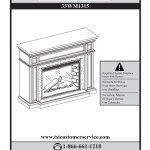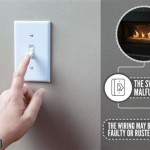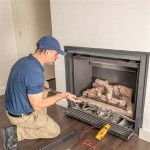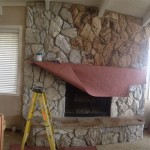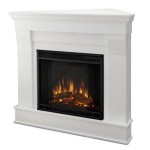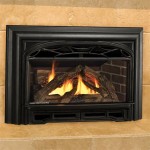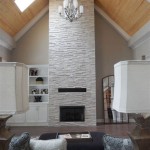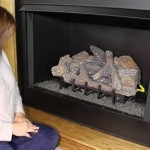Linear Fireplace Design: Modern Elegance and Efficient Heating
Linear fireplaces, characterized by their long, horizontal design, have become a popular choice in contemporary homes. Offering a sleek and minimalist aesthetic, they seamlessly integrate into modern interiors while providing warmth and ambiance. Beyond their visual appeal, linear fireplaces offer significant advantages in terms of efficiency and heating distribution. This article will delve into the key features and advantages of linear fireplace design, exploring its impact on interior design and heating performance.
Aesthetic Versatility of Linear Fireplaces
Linear fireplaces are incredibly versatile in terms of their design and integration into various spaces. Their elongated form allows them to be installed almost anywhere, from floor to ceiling, along a wall, or even as a focal point within a room. This flexibility makes them ideal for both large and small spaces, offering a unique and modern touch. The lack of bulky frames and traditional decorative elements contributes to a clean and minimalist look, complementing contemporary design styles.
Furthermore, linear fireplaces can be customized with various materials and finishes to perfectly match the surrounding décor. From sleek stainless steel and polished stone to warm wood and natural brick, the options are endless. These versatility allows for a seamless blend with the existing architecture and furniture, creating a cohesive and aesthetically pleasing environment.
Enhanced Heating Performance
Linear fireplaces are designed for optimal heat distribution, offering superior heating efficiency compared to traditional fireplaces. Their long, horizontal design allows for a larger surface area exposed to the flames, resulting in greater heat output. This characteristic makes them particularly effective in warming larger rooms, while efficiently utilizing the fuel source. Modern technology incorporated into linear fireplaces, such as ventless systems and efficient combustion chambers, further enhances their heating capabilities.
The directional nature of linear fireplaces allows for focused heat distribution, directing warmth directly into the desired areas of the room. This feature helps create a comfortable and cozy atmosphere, especially in spaces with open floor plans or high ceilings where traditional fireplaces struggle to provide consistent warmth. The ability to provide both visual and thermal comfort makes linear fireplaces a valuable investment for any home.
Types and Features of Linear Fireplaces
Linear fireplaces are available in various types, each with its unique features and advantages. Some of the common types include:
Gas Fireplaces
Gas linear fireplaces are popular due to their ease of use and instant ignition. They offer a clean and efficient way to enjoy a real fire without the hassle of wood preparation and ash cleanup. Gas fireplaces are also readily available with various flame patterns and sizes, allowing for customization to suit personal preferences.
Electric Fireplaces
Electric linear fireplaces are a convenient and energy-efficient alternative to traditional fireplaces. They require no venting or chimney and are easy to install, making them ideal for homes with limited space or where open fireplaces are not feasible. Electric linear fireplaces offer a range of realistic flame effects and heating options, providing ambiance and warmth without the associated environmental impact.
Wood-Burning Fireplaces
For those who prefer the traditional charm of wood-burning fireplaces, linear models offer a contemporary twist on the classic design. They are available with modern features like efficient burning chambers and built-in air controls, ensuring a safe and efficient burning experience. However, wood-burning fireplaces require regular maintenance and have a greater environmental impact compared to gas or electric alternatives.
In addition to the type of fuel source, linear fireplaces can be designed with various features, such as built-in media shelves, surround sound systems, and integrated lighting elements. These additions further enhance their functionality and visual appeal, transforming them into multi-purpose focal points in any room.
Conclusion
Linear fireplaces offer a sophisticated and practical approach to heating and interior design. Their contemporary aesthetic, versatility, and efficient heating capabilities make them an excellent choice for modern homes. Whether you prefer a traditional wood-burning experience, the convenience of gas, or the eco-friendliness of electric, there is a linear fireplace to suit every style and budget. By understanding the key features and advantages of linear fireplace design, homeowners can make an informed decision that will enhance both the functionality and the beauty of their homes.

A Linear Fireplace Is Great Modern Option For Your Home

55 Contemporary Linear Fireplace Ideas For Every Home Gas Modern Houses Interior

Why Linear Fireplaces Are Curly Adored By Designers

Linear Fireplace Ideas And How To Make Them Work

Linear Fireplaces Are Popular Among Interior Designers

Linear Fireplace Mantle Ideas Photos Houzz
:max_bytes(150000):strip_icc()/MichelleBoudreau9249Revised-f7fbece9537043d182b09d3178a3f61d.jpeg?strip=all)
27 Linear Fireplace Ideas That Are Sleek And Modern

Part 1 How To Install An Ignitexl Bold Built In Linear Fireplace 1776 Faux Farmhouse
Modern Linear Gas Fireplaces Heat Glo

The Key Benefits Of A Modern Linear Gas Fireplace Embers Fireplaces Outdoor Living
Related Posts

